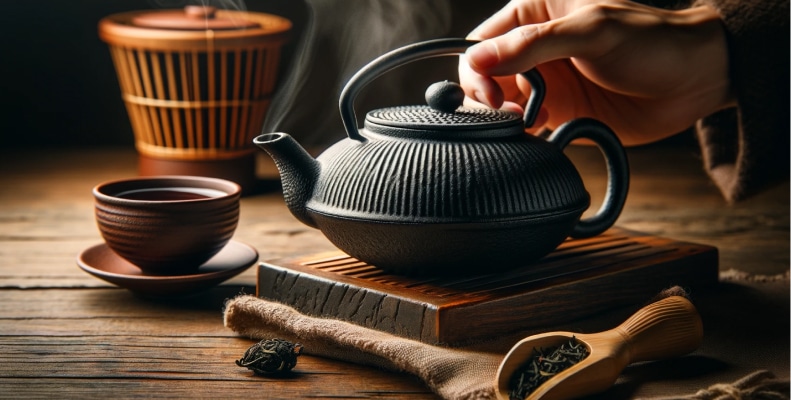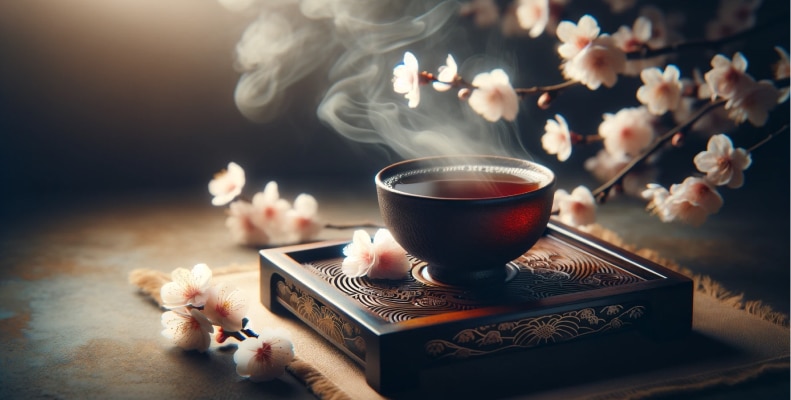When you think of Japanese tea, you may envision delicate green brews and intricate tea ceremonies. But have you ever wondered about the world of Japanese black tea? What flavors and health benefits does it offer? How does it fit into the rich culture of tea ceremonies? Let’s explore the fascinating realm of Japanese black tea and discover why it’s a captivating deviation from the traditional green tea.
What is Japanese Black Tea?
Japanese black tea, or “Wakoucha,” is a unique expression of Japan’s tea tradition. It is made from the Camellia sinensis plant, like all traditional teas. Wakoucha undergoes full oxidation, which gives it a rich flavor and dark color. This type of tea is less common in Japan compared to green tea. Wakoucha has a bold taste, different from the delicate flavors of Japanese green teas. It contains antioxidants and flavonoids beneficial for heart health and cognitive function. The flavor profile of Wakoucha can vary, offering sweet, malty, fruity, or floral notes. Japanese black tea’s unique taste is influenced by Japan’s specific climate and soil. Despite its rarity, Wakoucha is gaining popularity for its distinctive flavor and health benefits.
Brewing Tips for Japanese Black Tea
Brewing Japanese black tea requires specific techniques to enhance its flavors and aromas. By following these steps, you can ensure that each cup of Japanese black tea you make is a delightful experience.
1. Water Temperature:
One crucial factor in brewing Japanese black tea is the water temperature. The ideal temperature for black tea is near boiling, around 95°C (203°F). This high temperature helps extract the bold flavors and robust characteristics of the tea leaves.
2. Steeping Time:
Steeping time is another essential element when brewing Japanese black tea. The recommended steeping time for black tea ranges from 3 to 5 minutes. This duration allows the tea leaves to infuse the water fully, resulting in a well-developed and flavorful cup of tea.
Unlike other delicate teas, black tea can tolerate longer steeping times without becoming overly bitter. So, if you prefer a stronger taste, feel free to extend the steeping time up to 5 minutes.
3. Tea-to-Water Ratio:
The tea-to-water ratio also affects the flavor of your Japanese black tea. Generally, a ratio of 1 teaspoon of tea leaves per 8 ounces of water is recommended. Adjust the quantity according to your preference for a stronger or milder brew.
Ensure that you use high-quality loose leaf Japanese black tea for the best flavor and aroma.
Now that you know the brewing essentials for Japanese black tea, you can confidently prepare a perfect cup every time. Experiment with different steeping times and tea-to-water ratios to find your preferred strength and flavor profile!
“Brewing Japanese black tea requires specific techniques to enhance its flavors and aromas.”

Popular Varieties of Japanese Black Tea
Japanese black tea is gaining in popularity, both inside and outside of Japan. Unlike the vast array of green teas Japan is famous for, Wakoucha is a rare find, celebrated for its nuanced flavors. In Japan, the focus on black tea is more about purity and the expression of the tea-leaf’s inherent qualities. Each region in Japan brings its own twist, creating Wakoucha that’s as diverse as the landscape from which it comes. Expect a range from sweet and malty to fruity and floral – a testament to Japan’s varied climates and tea mastery.
Blends Associated with Japanese Black Tea
In the world of tea, Japan’s Wakoucha is stepping into the blending scene. While not traditionally known for blends like the Western favorites English Breakfast or Earl Grey, Japanese tea culture is beginning to explore. Think Wakoucha with a twist – mixed with local herbs, spices, or even making its way into traditional tea ceremonies. This new venture into blends isn’t just about creating something new; it’s about opening doors, connecting the deep roots of Japanese tea culture with tastes from around the globe.
As Wakoucha gains international attention, it’s not just the unique flavors that captivate, but the potential for innovation. Japanese tea producers are on the cusp of blending tradition with global tastes, promising a future where Wakoucha holds a distinct place in the world of tea, both honoring its heritage and embracing new possibilities.
FAQ
What is Japanese black tea?
Japanese black tea, known locally as “Wakoucha,” is a fully oxidized tea made from the Camellia sinensis plant. Unlike the more globally renowned Japanese green teas, Wakoucha is known for its rich, bold flavor profile and deep, reddish-brown color. This type of tea represents a smaller fraction of Japan’s tea production but is celebrated for its unique taste, which is influenced by Japan’s specific climate and terroir.
What are the health benefits of Japanese black tea?
Japanese black tea is rich in antioxidants, particularly catechins and theaflavins, which are transformed during the oxidation process. These compounds can help in protecting against heart disease and reducing cholesterol. Additionally, its flavonoids may support cognitive function, and the moderate caffeine content helps in enhancing alertness and energy levels.
What are some popular varieties of Japanese black tea?
While “Wakoucha” is a general term for Japanese black tea, there are not as many distinct named varieties as seen with green tea. However, the flavor profile of Wakoucha can vary significantly depending on the region it’s grown in, the specific cultivation practices, and the processing methods used. Tea from Kagoshima and Miyazaki, for instance, might offer different tasting notes.
How do you brew Japanese black tea?
To best enjoy the unique flavors of Japanese black tea:
- Use water just off the boil, around 95°C (203°F).
- Steep 1-2 teaspoons of loose leaf tea per cup for 3 to 5 minutes, depending on your taste preference. Adjusting the amount of tea or steeping time can help you find the perfect balance for your palate.
Can Japanese black tea withstand longer steeping times?
Yes, Japanese black tea generally tolerates longer steeping times well, thanks to its full oxidation process. It tends to develop a richer flavor rather than bitterness when steeped longer, though personal preferences for strength and bitterness vary.


